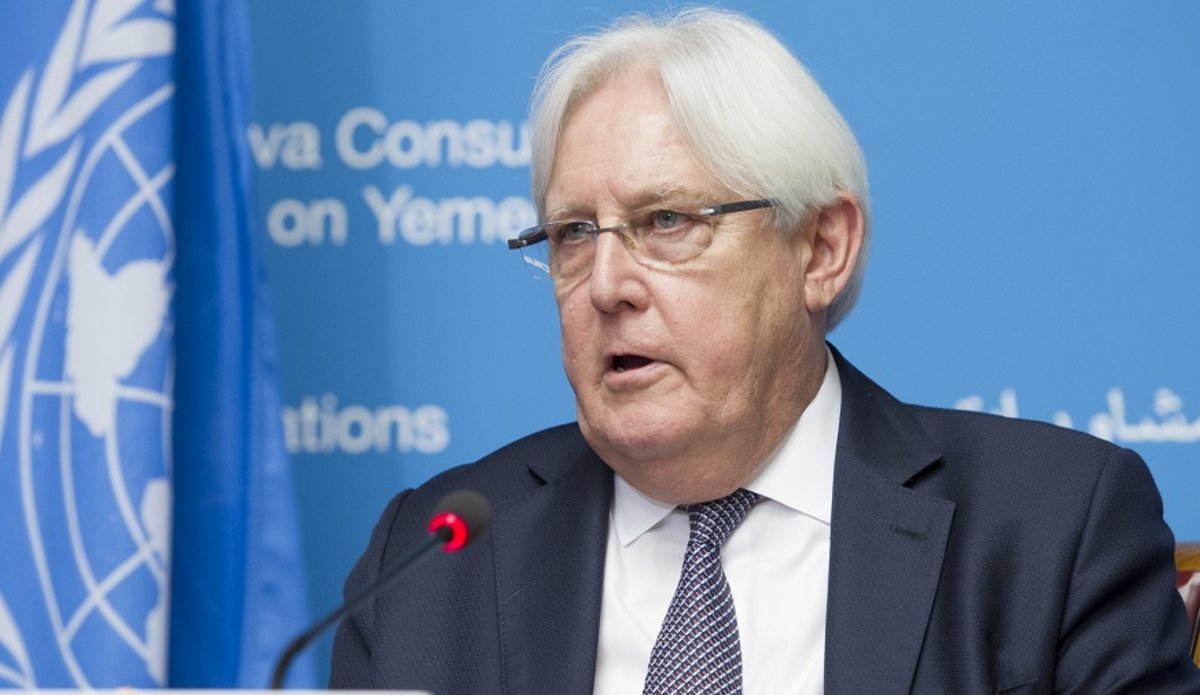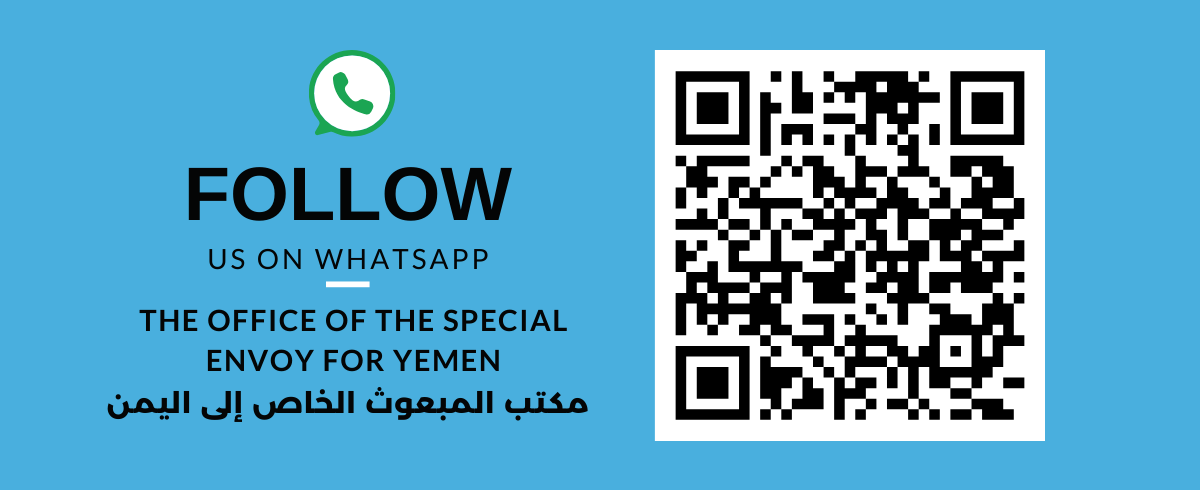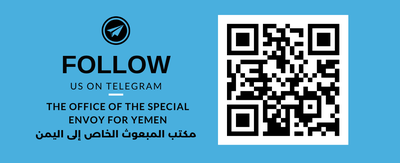Statement of the Special Envoy for Yemen to the Press on the Consultations in Geneva
Geneva, 5 september 2018 - Thank you very much for coming, I am sorry I am slightly late, it’s been a busy day. I’ll make first a short statement and then, as Alessandra said, I am happy to answer some questions.
Since my appointment, it has been a race against time, to face the complexity and urgency of the situation, which affects, as you know, millions, millions of Yemenis. I have been listening to Yemenis and leaders of opinion for the last seven months. I have had thorough discussions with diplomats, civil society, women’s groups, members of the international community and political and social leaders from every part of Yemen’s society. And my abiding impressions from those detailed discussions is this: we have all agreed that time has come to begin a new process, to relaunch the process which will lead to a resolution of this conflict, which has so tragically marked the lives of so many Yemenis, and continues to do so.
And it is for that reason that we are inviting the two main parties of Yemen to the consultations here in Geneva. I’ve invited the Government of Yemen and also Ansarullah to the consultations; delegations from both sides have been formed. Arrangements for all delegations, from both sides, for both delegations to be present, are being finalized, and we are working hard to make sure this happens and we are able to begin the consultations. I have also invited – and they are here, they have been here for more than a day - a technical advisory group of Yemeni women, chosen on the basis of their professional merits and technical expertise. This is an unusual arrangement because this will be a group of women who have a larger diaspora and a larger constituency with which they will be in constant contact. They will be helping me throughout the process of this first round of consultations and those that follow.
As you know, it has been two years, two years too long, since the parties last met. They met in Kuwait thanks to the hospitality and the leadership of the Emir of Kuwait. I had a pleasure of meeting him the other day, and it has been a process in Yemen, they started discussions in Geneva, they went to Biel, they went to Kuwait. Two years have passed since they met. This is an opportunity this week, for that page to be turned and that corner to be turned.
We are talking about consultations – that word is carefully chosen – this is not a formal negotiation. We are still in the process of trying to understand how the leadership and others in the two parties want to engage with each other, on what issues, in what sequence, in what place. I am also being very actively involved in seeking advice and input from Yemenis who are not part of the two parties. The women’s group I mentioned but we are also very keen to receive the views and issues from the South. I had an opportunity to meet a group of independent Yemeni figures in August in the United Kingdom, and this will go on. There will be a process of continuing consultations. The Security Council resolution requires – apart from the end of the war, the disarmament, and withdrawal of forces – an inclusive political settlement, and that is what we intend to produce and I hope that will start here in Geneva.
The consultations will focus on two main aspects: to reactivate the peace process - as I say in suspension these two years passed, and to lay the groundwork then on the basis of discussions we’ll have this week for formal negotiations which will come later. And the second aspect is confidence building measures, and if I may, I’d like to spend a moment on the issue of confidence building measures. As you know, in any conflict, the confidence between the parties is usually at an all-time low at the time when they start to engage and talk to each other. Building confidence between parties so that they can address issues together, resolve issues through compromise, concession and principle, requires trust in each other. Confidence building measures are designed partly to help build this trust through agreements on them, partly to actual deliver some benefits for the people of Yemen, and partly to send a signal to the international community and the people of Yemen that something is happening.
The people of Yemen, like in any other conflict, are desperately in need of a signal of hope. We’d like to think that the work we will do together in these next days will begin to send a flickering signal of hope to them. I’ll give you an example – it may not be the one we discussed with the parties because we still have to agree with them what these measures will be – but one example is the arrangements for the vaccination of children. There was a successful vaccination programme in Hodeida in fact in recent weeks, agreeing a pause between the parties so that the agencies could go in and perform their necessary work. This requires the cooperation of the parties, this requires the professionalism of the agencies, and this delivers ideally some benefits, some tangible benefits to the people of Yemen. It’s an example, and we will be looking at others as we have the consultations this week.
I’ll end here because I am sure that you have lots of questions, but I would like to say that I am very grateful to the people in the Palais, my colleagues who put this week together, and to the Swiss Government who are hosting us, helping us financially, helping us with security. This is a great city and am very, very proud to be back here to get the benefits of the Swiss hospitality, the Swiss security and the Palais’ professionalism. Thank you very much.
 UN
UN







